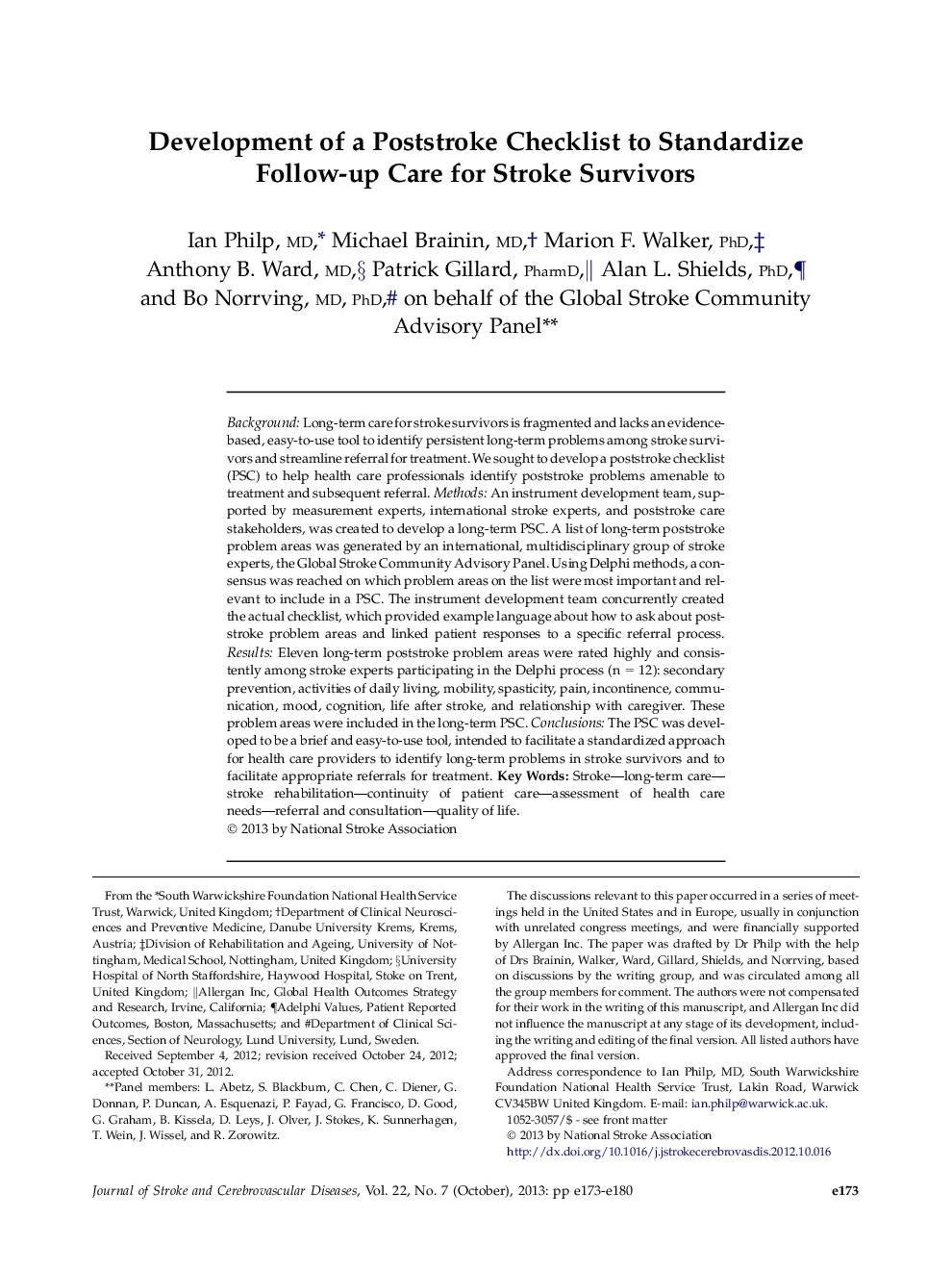| Article ID | Journal | Published Year | Pages | File Type |
|---|---|---|---|---|
| 5874513 | Journal of Stroke and Cerebrovascular Diseases | 2013 | 8 Pages |
BackgroundLong-term care for stroke survivors is fragmented and lacks an evidence-based, easy-to-use tool to identify persistent long-term problems among stroke survivors and streamline referral for treatment. We sought to develop a poststroke checklist (PSC) to help health care professionals identify poststroke problems amenable to treatment and subsequent referral.MethodsAn instrument development team, supported by measurement experts, international stroke experts, and poststroke care stakeholders, was created to develop a long-term PSC. A list of long-term poststroke problem areas was generated by an international, multidisciplinary group of stroke experts, the Global Stroke Community Advisory Panel. Using Delphi methods, a consensus was reached on which problem areas on the list were most important and relevant to include in a PSC. The instrument development team concurrently created the actual checklist, which provided example language about how to ask about poststroke problem areas and linked patient responses to a specific referral process.ResultsEleven long-term poststroke problem areas were rated highly and consistently among stroke experts participating in the Delphi process (n = 12): secondary prevention, activities of daily living, mobility, spasticity, pain, incontinence, communication, mood, cognition, life after stroke, and relationship with caregiver. These problem areas were included in the long-term PSC.ConclusionsThe PSC was developed to be a brief and easy-to-use tool, intended to facilitate a standardized approach for health care providers to identify long-term problems in stroke survivors and to facilitate appropriate referrals for treatment.
